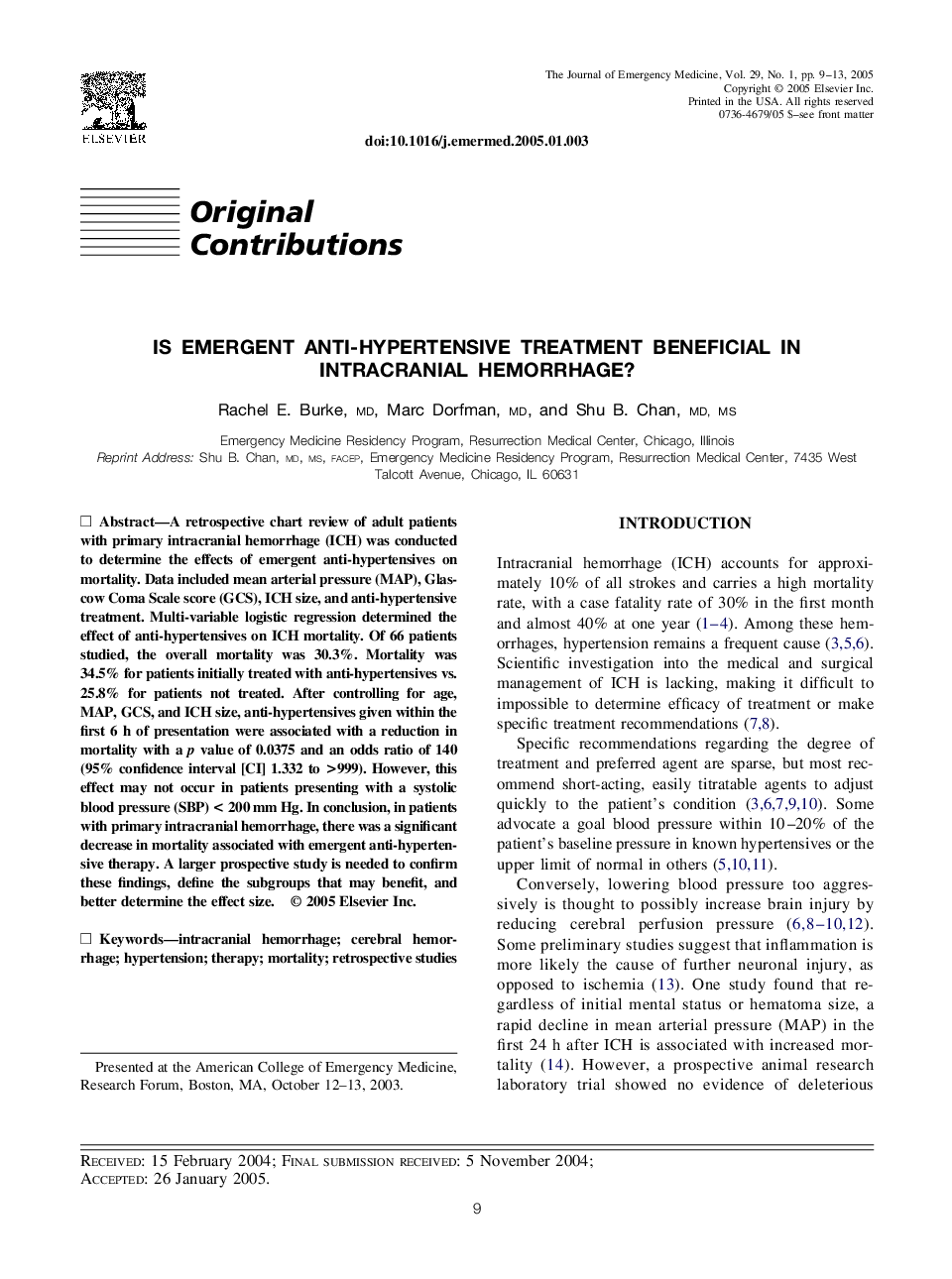| Article ID | Journal | Published Year | Pages | File Type |
|---|---|---|---|---|
| 10021714 | The Journal of Emergency Medicine | 2005 | 5 Pages |
Abstract
A retrospective chart review of adult patients with primary intracranial hemorrhage (ICH) was conducted to determine the effects of emergent anti-hypertensives on mortality. Data included mean arterial pressure (MAP), Glascow Coma Scale score (GCS), ICH size, and anti-hypertensive treatment. Multi-variable logistic regression determined the effect of anti-hypertensives on ICH mortality. Of 66 patients studied, the overall mortality was 30.3%. Mortality was 34.5% for patients initially treated with anti-hypertensives vs. 25.8% for patients not treated. After controlling for age, MAP, GCS, and ICH size, anti-hypertensives given within the first 6 h of presentation were associated with a reduction in mortality with a p value of 0.0375 and an odds ratio of 140 (95% confidence interval [CI] 1.332 to >999). However, this effect may not occur in patients presenting with a systolic blood pressure (SBP) < 200 mm Hg. In conclusion, in patients with primary intracranial hemorrhage, there was a significant decrease in mortality associated with emergent anti-hypertensive therapy. A larger prospective study is needed to confirm these findings, define the subgroups that may benefit, and better determine the effect size.
Keywords
Related Topics
Health Sciences
Medicine and Dentistry
Emergency Medicine
Authors
Rachel E. MD, Marc MD, Shu B. MD, MS,
